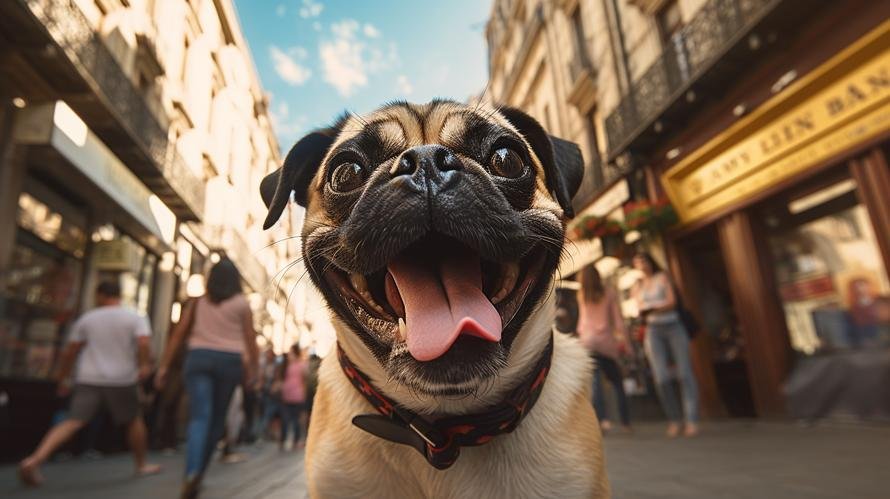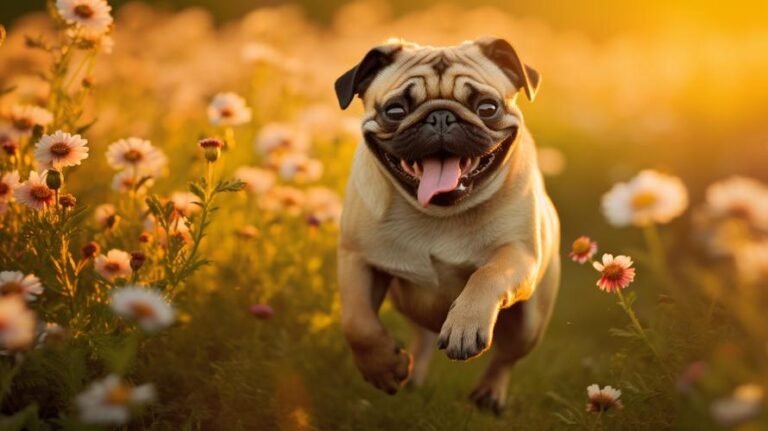You’ve heard of Boerboels, German Shepherds and Rottweilers as extraordinary guard dogs, but have you ever thought of a Pug in the same niche? The thought alone might draw a chuckle, considering the small stature and mushy face of this breed. However, what if I told you this could be a reality? Pause the laughter; today, we’ll explore the fascinating subject of Pugs and their potential for being guard dogs.
Before we dive in, it’s worth noting that guard dogs are revered for their exceptional ability to protect, defend and warn their owners about perceived threats. They’re typically characterized by strength, agility, bravery, and unquestionable loyalty. Traditionally, larger breeds like the aforementioned Boerboels are often chosen for such roles. So, where does a breed like the Pug, known more for their adorability and affectionate nature, stand in this paradigm? Let’s find out.
Pugs, a toy breed originating from China, are one of the oldest known breeds. Known for their stout build, distinctive wrinkled face, and snub-nosed charm, the Pug was initially bred to keep Emperors company rather than guard Imperial palaces. History notes that these dogs were so treasured, they had their guards in ancient Chinese courts. While their primary role was companionship, they indeed have a few characteristics that might make you rethink underestimating their guard dog potential.
Let’s delve into some facts about the Pug breed. Pugs are notably intelligent, known to be both observant and quick learners. This learning aptitude forms the foundation of the case for potentially training these adorably small dogs into becoming your home’s unsung protector.
Additionally, pugs are renowned for their loyalty. They bond quickly with their families and are known to be incredibly attached to their owners. This characteristic could be a significant advantage in a guard dog as loyalty often translates into a desire to protect.
While traits like intelligence and loyalty are central to a guard dog’s effectiveness, a commonly overlooked element is the dog’s alertness level. Alertness plays a crucial role as an efficient guard dog must be aware of its surroundings and identify potential dangers. When it comes to being alert, pugs are exceptionally keen observers. They are continually observing their environment and are quick to notice when something seems off. You’ll often find these little ones barking to alert their owners of new visitors or strange noises.
At this point, you might be thinking – while these traits make pugs good potential watchdogs, could they be guard dogs? By definition, a watchdog alerts their owners of possible threats, while a guard dog is trained to intimidate or even combat the threat. Considering a Pug’s small stature and overall non-threatening appearance, intimidating or combating threats may not be up their alley. They might bark and display unease when confronted with unwelcome intruders, but don’t expect them to physically challenge threats like a Rottweiler or a German Shepherd would.
Although training could elevate a Pug’s guard dog capabilities, remember that they are inherently loving, friendly, and social breed. Pugs often crave affection and companionship, not the rigorous demands typically involved in guard dog training. Their health should also be considered as Pugs have a variety of health issues ranging from breathing difficulties to joint problems – rigorous physical activity could exacerbate these.
In conclusion, while Pugs possess some qualities that are essential in a guard dog, such as intelligence, loyalty, and alertness, their physical characteristics and overall friendly disposition make them better suited as companion dogs. Therefore, a Pug may make a fine watchdog and a loyal companion, but you might want to consider other breeds if you’re seeking a dedicated guard dog.
Nevertheless, Pugs come with an unmatched level of adorability, friendship, and warmth, making them an ideal pet for many families. They may not be the most intimidating breed out there, but rest assured they’ll guard your heart with an unsurpassed commitment. And, in the end, isn’t that what truly makes a great companion?



